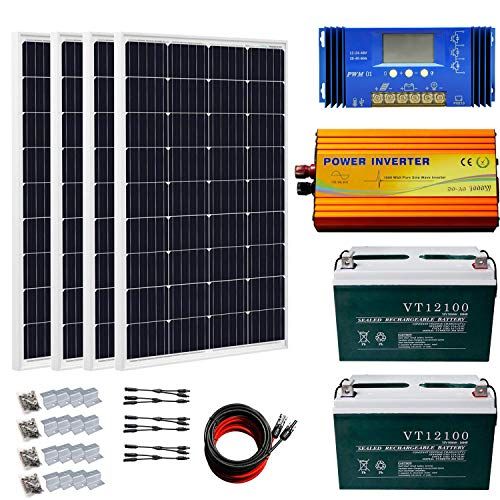The photovoltaic pv derating factor is a scaling factor that homer applies to the pv array power output to account for reduced output in real world operating conditions compared to the conditions under which the pv panel was rated.
Derating of solar panels.
The default derating factor on the solar goods diy solar calculator is 83 percent.
The derate factor for the pv module nameplate dc rating accounts for the accuracy of the manufacturer s nameplate rating.
Diy solar design tips to improve dc to ac derating.
Solar derating the full power generating capacity of your solar panels is achieved only when the sun shines perpendicular to the panel from straight overhead.
Use the derating factor to account for such factors as soiling of the panels wiring losses shading snow cover aging and so on.
The maximum power point changes constantly depending on solar irradiation levels and pv module temperature.
Unless manufacturers carefully control the process it can also produce environmentally harmful waste.
Otherwise as the angle of the sun changes less power is produced.
The pvwatts default overall dc to ac derate factors are based on a system with a string inverter.
Photovoltaics or solar panels that produce electricity are affected by their operating temperature which is primarily a product of the ambient air temperature as well as the level of sunlight.
Then divide the kw output by your panel s efficiency to get the estimated number of solar panels you ll need for your system.
To figure out how to size your solar system take your daily kwh energy requirement and divide it by your peak sun hours to get the kw output.
To determine the total derating factor for a system the losses are multiplied.
While solar panels don t produce any pollution during operation the processes involved in their manufacturing are energy intensive.
At this operating point the ratio between pv voltage and pv current results in the maximum power.
What is a solar module derate factor.
Pvwatts applies derate factors to determine the amount of ac power that will flow into the grid from the solar array accounting for many of the environmental characteristics of the site as well as system design and chosen components.
In normal operation inverters operate at their maximum power point.
Some systems use trackers which slowly rotate the panels so that they always face the sun.





























